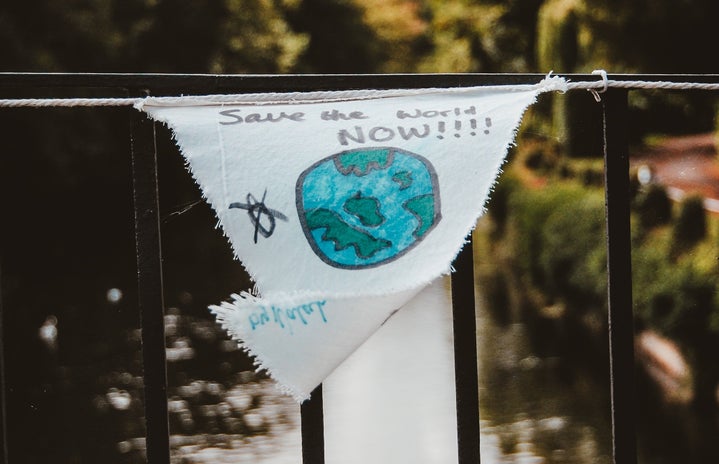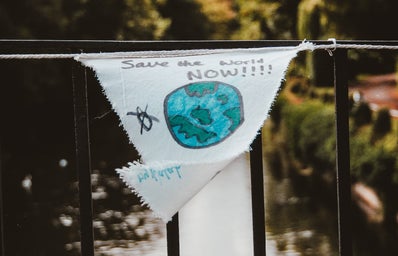We have the audacity to call Earth home
When bloodshed the only tongue we know
It cradles whilst with sabres we roam
And its destruction the sole prize we show
We have made a mockery out this land
Whence the barrel we point at our kin
We’ve granted domestic destruction the upper hand
And shun repentance for our abundance of sin
We proceed to lobby for trivial rights
When blood and origin we all share
Our selfish wants thus responsible for this plight
Thenceforth plunging us in an abyss of despair
Despite the never ending war against humanity
There exists a solution simple and potent
All one must do is exhibit benignity
Alas a ripple of change shall follow constructing content
“Until the lion learns how to write, every story will glorify the hunter” (J. Nozipo Maraire). This African proverb holds relevance to the poem above, as well as to this essay; historians in each country write about their victories, honouring their own and neglecting to mention the people who suffered at the hands of their armies. In addition, the media sifts through the atrocities that exist and select the few that will catch the public’s attention. In doing so, there are many stories left untold and skeletons in closets left to the dead. There are countless accounts of death, war, political uprise and everything in between that are not portrayed for trivial reasons, like the skin colour or the temple of worship of said struggling countries/people.
This ideology that third-world countries and the like are of less importance than Western ones is causing a further rift in mankind. Furthermore, in keeping a blind eye to the devastation that has struck third-world countries, people will continue to suffer. Alas, this article will examine a few instances in which Western privilege has harmed our neighbour kin. Conclusively, we have all been placed here by the same source, have the same blood running through our veins, and are of equal status in the eyes of the food chain. Therefore, every man and woman should be regarded with the same respect and equality, paying disregard to the colour of their skin, their mother-tongue or their place of worship.
The dictionary defines a human being as “a man, woman, or child of the species Homo sapiens, distinguished from other animals by superior mental development, power of articulate speech, and upright stance.” Therefore, to qualify as a human being, one must not be a specific race or of a specific cultural background. Ergo, why must one life matter more than another? In the words of Riverbend in Baghdad Burning: “The question that preoccupies me in the light of recent global violence is, ‘Who counts as human?’ ‘Whose lives count as lives?’ and, finally, ‘What makes for a grievable life?’” (20). Riverbend’s book and blogs examine the war in Baghdad. In doing so, she questions why the countless who have died in her country aren’t as important as those who died during the tragedy of 9/11. This is one example of how little lives in third-world countries are talked about. Somehow their struggles and inevitable deaths don’t shake the media into immediate action as would the domestic death of a Western kin. As such, children continue to suffer and innocent lives are lost. This will proceed to be the reality of this corrupt world until, truly, all lives matter – until everyone is regarded with the same immediacy.
Baghdad is merely one example of the countless massacres that have not been talked about. Another example is the Rwandan genocide of 1994, which almost annihilated the entire population of the Tutsis people. However, this was not widely discussed or even made into an issue, simply because Rwanda is not the United States. In addition, when I was researching examples for this article, at first, all I could find were shootings in the States. Somehow the death of one person managed to take precedence over that of a carefully thought out 100-day massacre in Rwanda. Alas, how many more people need to die before third-world countries finally gain significance?
It is in a man’s nature to be selfish; that is in due to “survival of the fittest.” Everyone wants to make sure that they, alongside their family, dominate the hierarchy, thus ensuring the survival of their genes. Now, that was the case back during the times of the hunter-gatherer society. However, present day offers the privilege of not having to kill to live to see tomorrow. Ergo, the savage ways of primitive days should be far behind us. Unfortunately, this is not the case, for man proceeds to shed blood in the name of hierarchy. In the words of Rousseau, “Man is born free, and everywhere he is in chains. One man thinks himself the master of others, but remains more of a slave than they.” Alas, if man is born free and all is equal, who gives one race authority over another? In doing so, we are granting cruelty reign over the lives of countless innocents. The caste system in India represents this ideology perfectly. That is due to the fact that the social class system claims one person more of a human being than another, thenceforth developing the idea that identifying as a person goes beyond possessing opposable thumbs. It is a sickening reality that you must fit every ridiculous criterion that an ancient system developed.
Another example that supports this thesis is in The Poisoned Bread by Shankarrao Kharat. In it, they portray how one complies to authority merely because that is how the world works. That is the case with so many people; they assume they must simply accept being lashed out upon and controlled by forces like the government, or even external sources like dominating countries, and then there are people who rebel and question the decisions being made. This could be seen in The Poisoned Bread, when the child questions why his father is being punished, speaking out of turn and standing tall in the face of the officialdom. “In my rage I pushed into the argument. ‘What reason have you got to abuse my father?’” (88). Furthermore, the child recognizes the irony in one man punishing another man, especially when there exists no sound reason in doing so.
Alas, this mere crave for puissance shall inevitably destroy the last semblance of humanity that may exist. For man is born equal and should be treated with that regard. Freedom of will should be a necessary law, and punishment should be justified by rule of law, as opposed to outdated culture that demeans man to levels of beast. Conclusively, “live and let live” should be followed religiously, so long as man strays not from the path of humanity and morale.
In addition to all that was mentioned above, there exists another issue that I believe is quite dire: the endless invasions and subsequent attempts to colonize other nations. I see this to be a grave situation, for it causes wars, death, destruction, and inevitable hate for the invading country. Moreover, it instills fear in every citizen and strips them of their home, culture and identity, thus probing them to flee to lands of haven; however, even in sanction, refugees are belittled and made to feel like aliens. This is not an example of a single case over the course of history. It is a recurring theme. The recent war in Syria, which prompted the arrival of an abundance of refugees in the past year, is an example. In addition, I have heard many stories from both my parents, who lived in a time of war during their childhoods. My mom would tell me blood-curdling anecdotes of nameless bodies scattered on the streets, of tortured screams that echoed in the night. My mother has seen family members blown away by bombs, and was miraculously lucky to have not been hit, standing a mere few feet away. The Israeli armies were ruthless in trying to invade Lebanon, all so they could claim the land as their own.
Another portrayal of this horrid reality is Raja Shehadeh’s book Palestinian Walks: Forays into a Vanishing Landscape, which discusses the war in Palestine. “This long-running drama has not ended. The stage, however, has relocated to the hills of the West Bank, where Israeli planners place Jewish settlements on hilltops and plan them such that they can only see other settlements while strategically dominating the valleys in which most Palestinian villages are located” (xvi). This paints the perfect picture of a beautiful town being destroyed, and its people killed, so that another race can own that land. It baffles me beyond words that the possession of lands is far more enticing than the lives of an entire nation – not to mention, these lands that blood is shed over aren’t even owned by man. They belong to Earth, which belongs to the void, and we belong to it. Ergo, why wage wars when we could all live in equal harmony, in a state where everyone is always welcome anywhere? End this selfish, racist nature once and for all. Alas, it is time for a change.


